
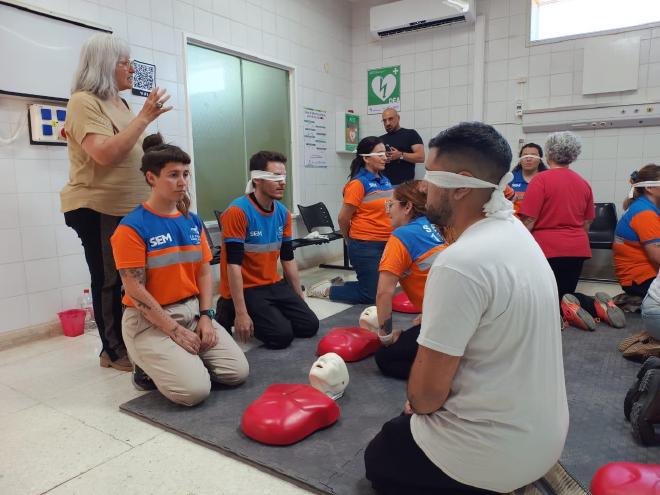
The training instance, aimed at radio operators of the Medical Emergency Systems (SEM), is part of an academic proposal of hybrid modality, with virtual synchronous classes and face-to-face practices, taught by specialized teachers of the National University of Tres de Febrero. More than fifty emergency operators and dispatchers participated, along with facilitators from the technical team of the Coordination of Health Emergencies and Disasters and the provincial SEMs.
The course organized by the Ministry of Health aimed to strengthen the operational skills of those who constitute the first link in the pre-hospital care chain, in a context of expansion and consolidation of dispatch systems in La Pampa.
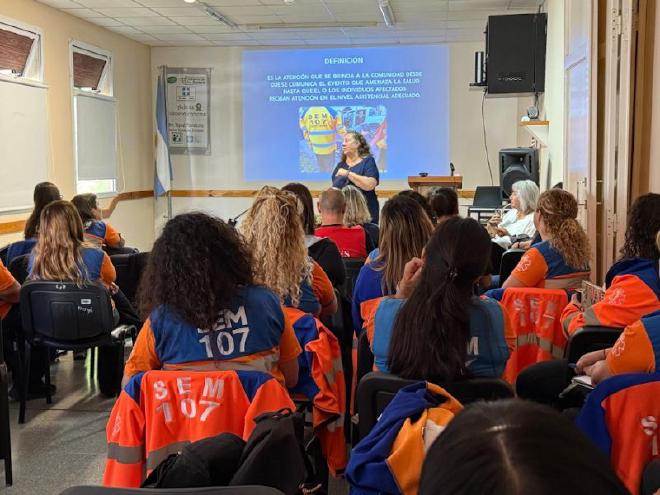
Juan Barbero, a representative of the Coordination of Disasters and Health Emergencies (CODES), explained to the Provincial News Agency that training the referents of the health teams that operate in the management of pre-hospital emergencies “is a key strategy to guarantee efficient, safe and coordinated responses to critical situations. Today we have a new dispatch center in the SEM of Santa Rosa, and in General Pico we work in an articulated manner with the Ministry of Security in a unified center. These advances require highly trained personnel, with mastery of validated protocols and the ability to make decisions in real time. This course, which culminates with clinical simulation and problem-solving workshops, allows the consolidation of technical and communication skills in operators, who are the gateway to the emergency system. The professionalization of this human resource is essential to sustain the quality and effectiveness of the health system in emergency contexts”.
Addressing critical issues #
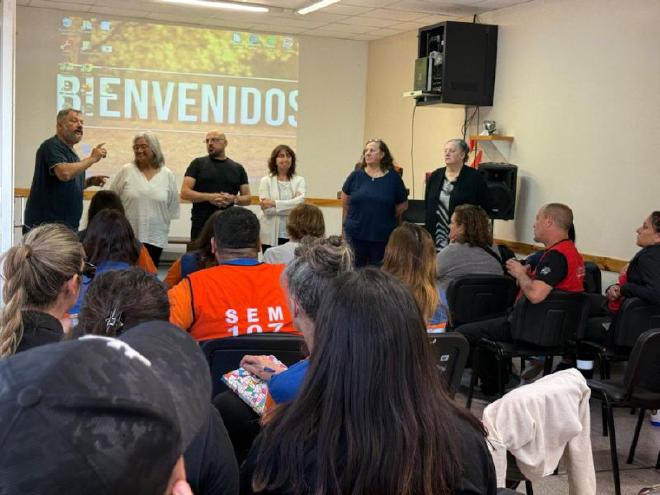
Barbero stressed that during the face-to-face instance “critical issues for the comprehensive management of emergencies in the pre-hospital environment were addressed” and added: “the participants worked on the telephone reception of incidents, applying criteria of active listening, directed questioning and prioritization of the demand. The categorization and pre-arrival protocols of the cases, fundamental for the efficient activation of resources, were deepened. Content on medical transfer was also developed, including criteria for referral, stabilization and inter-institutional communication. Psychiatric emergencies were approached from a containment and safety perspective, while basic CPR maneuvers and the use of the Automated External Defibrillator (AED) were trained. In the obstetrics module, work was done on the management of inevitable childbirth in an out-of-hospital context, prioritizing the safety of the mother-child binomial. In addition, operators participated in high-fidelity clinical simulation stations, where they solved complex scenarios through problem-based practices, strengthening their technical, communicational, and real-time decision-making skills”.
Redoubling professional commitment #
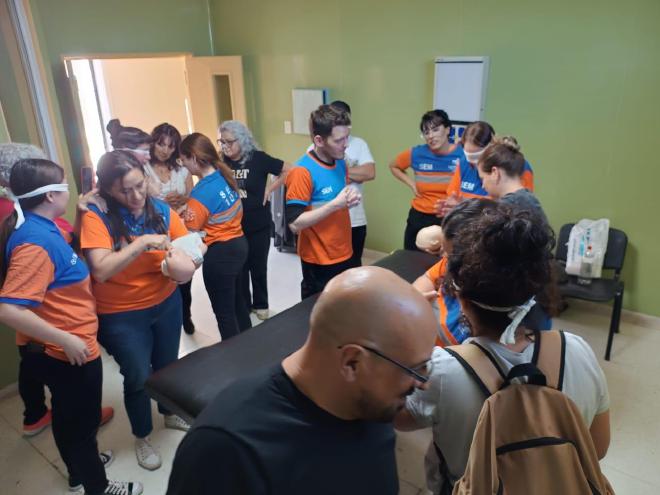
Meanwhile, Mariana Díaz, coordinator of the radio operators sector, when asked about the importance of this type of training, said: “The training of radio operators must be continuous, systematic and sustained over time. Our role in the emergency system is strategic: we are the first contact, the voice that guides, contains and activates the necessary resources in critical situations. Therefore, training not only improves the quality of the service, but also allows us to make visible the complexity and value of our task”.
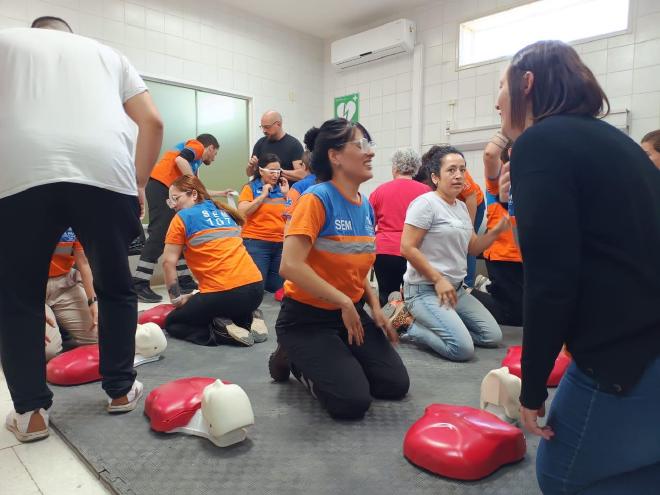
“I am deeply grateful for the training space provided, the effort involved in sustaining these instances and the possibility of projecting new actions that strengthen our work. Training is also building community, it allows us to better understand people’s needs, provide more precise responses and continue consolidating a more humane, more efficient and closer emergency system. In times where demand is growing and diverse, redoubling professional commitment is a responsibility that we assume with pride,” she concluded.
Contact [Notaspampeanas](mailto: notaspampeanas@gmail.com)

